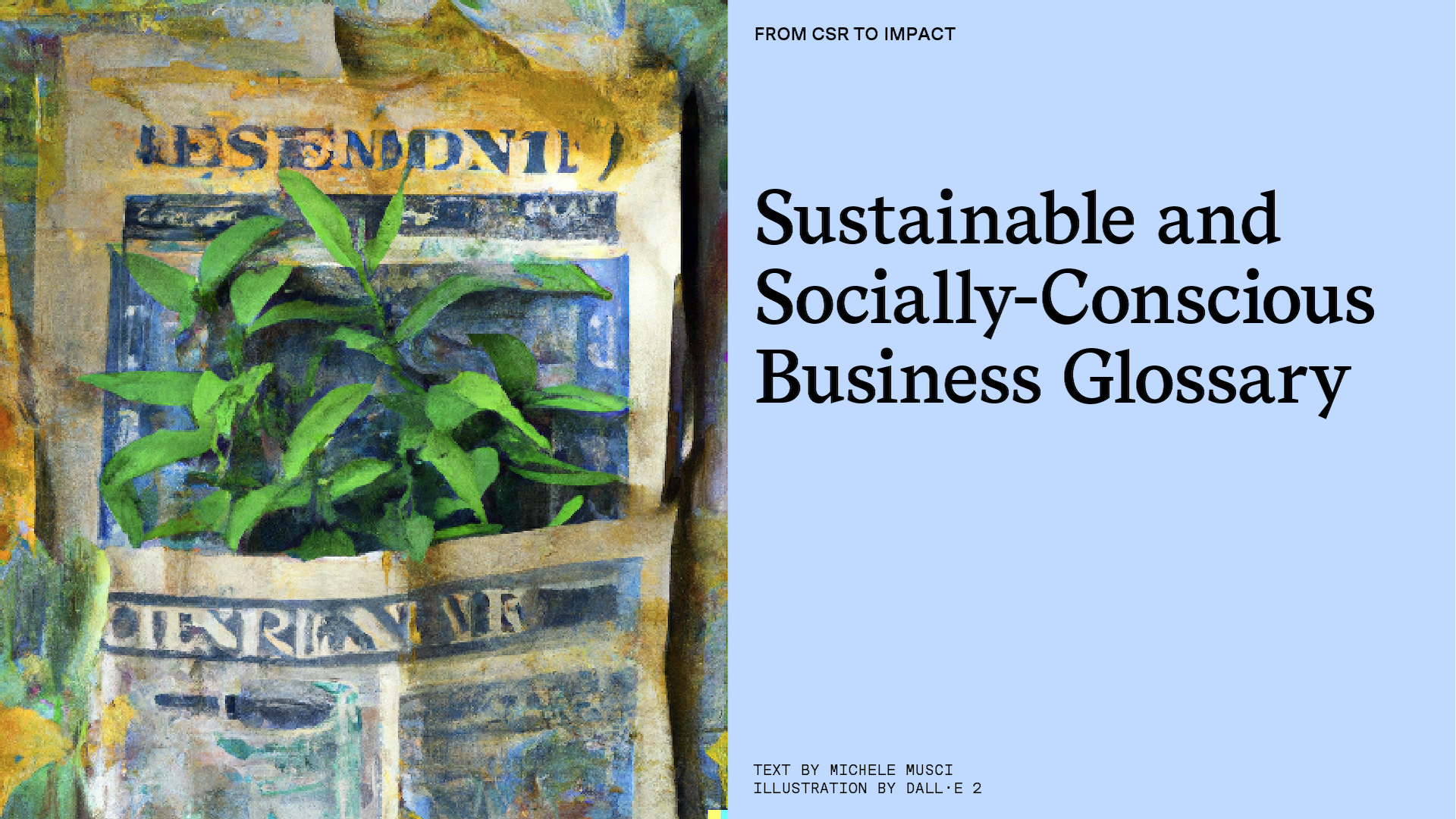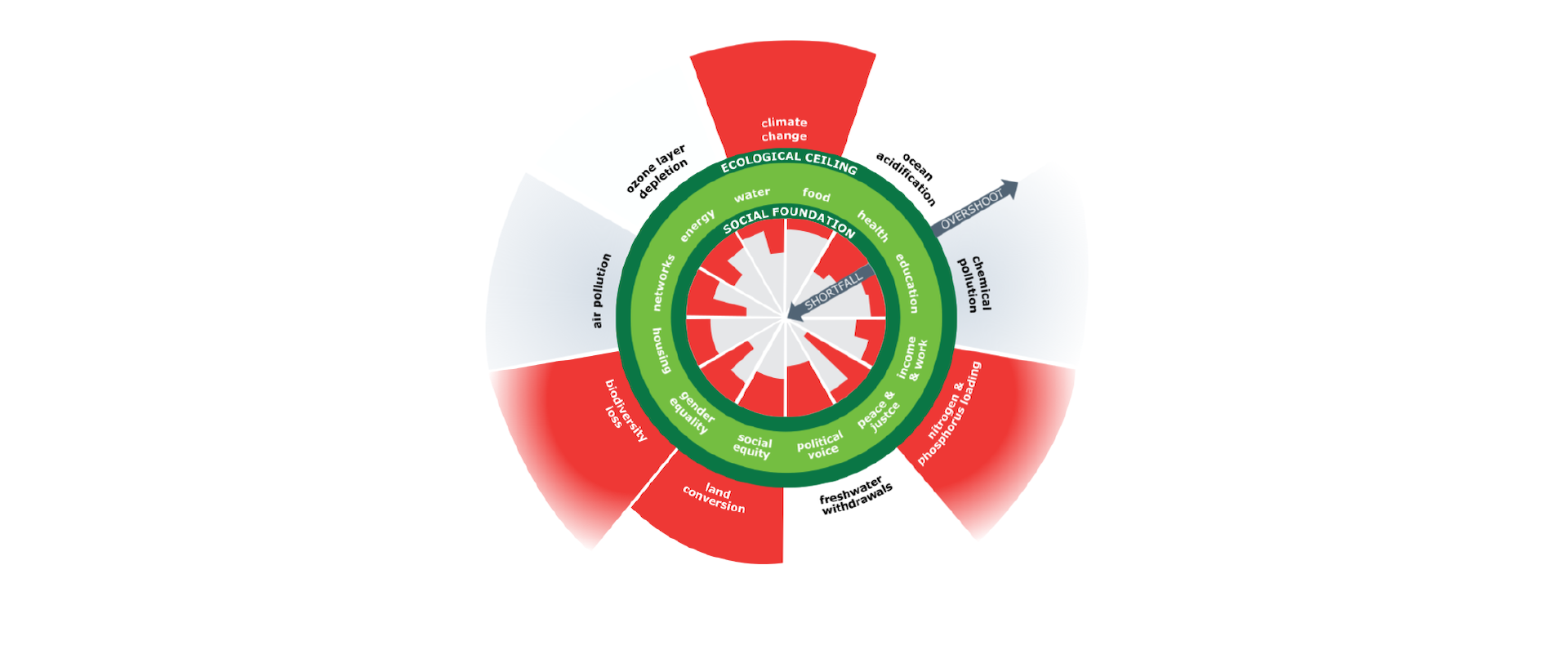
Purplewashing: what is it and how to avoid it?

As the importance and urgency of climate changes increase – both in terms of scope and magnitude – we are faced with undeniable reality: this fight will only be won if it is led on all fronts, especially on that of private companies.
But when it comes to taking action, even the most well-intentioned companies can struggle. It isn’t always easy to make sense of all the corporate social responsibility jargon. ESG, CSR, ODD: there always seems to be a new acronym! And to develop strong strategies, comprehension of their meaning and underlying concepts is imperative.
Here is a small glossary of the terms to know in order to properly navigate the impact lexicon.
Sustainability (or sustainable development) as a concept was defined in 1987 by the United Nations Brundtland Commission as “meeting the needs of the present without compromising the ability of future generations to meet their own needs.”
In other words, it is about ensuring that no one lacks life necessities (from food to shelter, from health care to political representation), while ensuring that collectively, we do not exceed the limits of our unique and sole life-sustaining planet.

However, we would need around 1.75 planet Earths to provide the resources to answer our consumption waste management needs. And that is with several billion people living with multidimensional poverty.

A very effective way to present Sustainable Development is the Donut which was developed by Kate Raworth
For this reason, the United Nations adopted the 2030 Agenda for Sustainable Development in September 2015 after two years of negotiations. This agenda defines 17 Sustainable Development Goals (SDGs) and targets that member countries have set out to achieve by 2030. This is in order to eradicate poverty – in all its forms – in all countries, to protect the planet and to ensure prosperity for all.
What actions can private companies take in this global movement for change?
The first step is to recognize that the current capitalist model is deeply flawed and that it is responsible for the environmental and social crisis we are currently facing. Companies that have been part of the problem must now choose to be part of the solution.
Contrary to the Friedmanian philosophy that sees profit maximization for shareholders as the ultimate goal of a company, a new – and more sustainable – vision is being popularized today. Presenting stakeholder capitalism. In this doctrine, profit is only the necessary result of an enlightened corporate management that takes into consideration the interests of all parties that may contribute to the company's value. Instead of placing this value solely on investors, this new capitalism takes all employees, suppliers, consumers, as well as the environment, the community and the society in which the company evolves into account.
This idea that companies are more than the sum of their stakeholders goes hand in hand with another fundamental idea: that private organizations have a role to play in society, a corporate social responsibility (CSR). In order to assume its responsibilities, the company must recognize the consequences of its activities, and then put in place actions to prevent or address them.
CSR can be considered as the responsibility that a company has to mitigate its activities’ negative impacts on its stakeholders and on all it accomplishes to achieve its objectives.
A company’s CSR manager must therefore coordinate all CSR strategies and publish a CSR report that communicates its progress. Even at Republik, ESG reporting is an important part of our operations. Why is that?
The term ESG was born from the concept of a triple bottom line (People, Planet, Profit), first formulated in 1981 by Freer Spreckley, who argued that companies should measure and report on their financial performance, social wealth creation and environmental responsibility.
In 2006, the United Nations Principles for Responsible Investment (UNPRI) framework was launched. UNPRI makes ESG criteria accessible to the general public. Although it was first used to designate the Environmental, Social and Governance pillars of extra-financial analysis, we can consider that there has been an evolution in its use. Today, in common usage, the word ESG is used as a synonym for CSR.
Unfortunately, even with CSR (or ESG), we are not out of the woods. Faced with an extraordinary environmental crisis and seemingly unsolvable societal issues (so-called wicked problems), simply reducing a company’s negative impact is no longer enough. Businesses must now generate a positive impact.
At Republik, we define impact as positive, intentional, sustainable and measurable change. Unlike CSR, which looks at how an organization’s operations affect its stakeholders (inside-out perspective), impact starts with an environmental or societal issue (outside-in perspective), for which a company must strive to find a solution rooted in its values, strengths and capabilities.
Courage is the key to addressing our society's most pressing issues and creating a just and sustainable world.
Any company that wants to play a key role in society must first understand certain basic concepts. Speaking a common language is the first step in developing and implementing corporate strategies to contribute to the fight against climate change and social inequality.